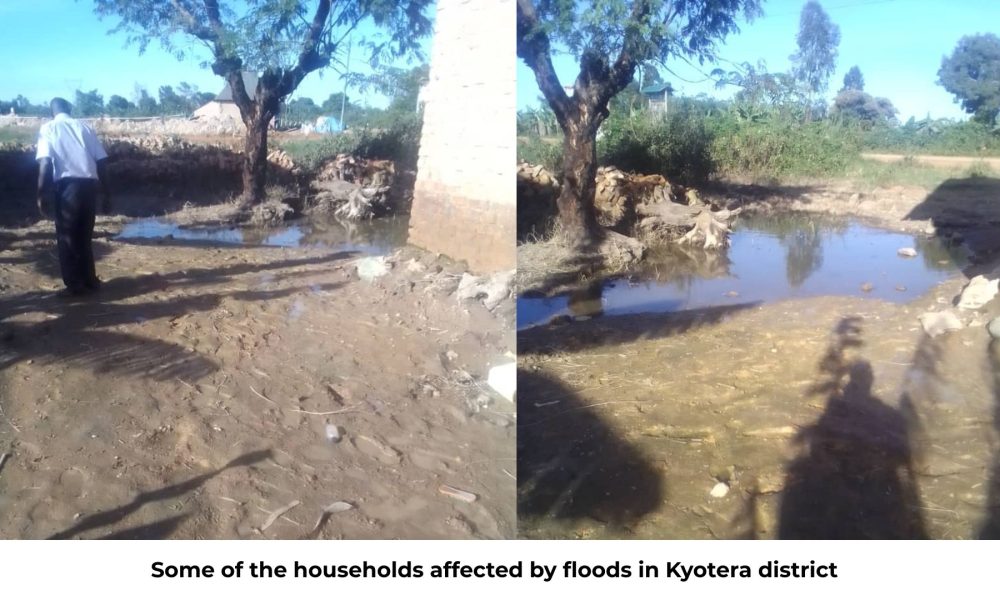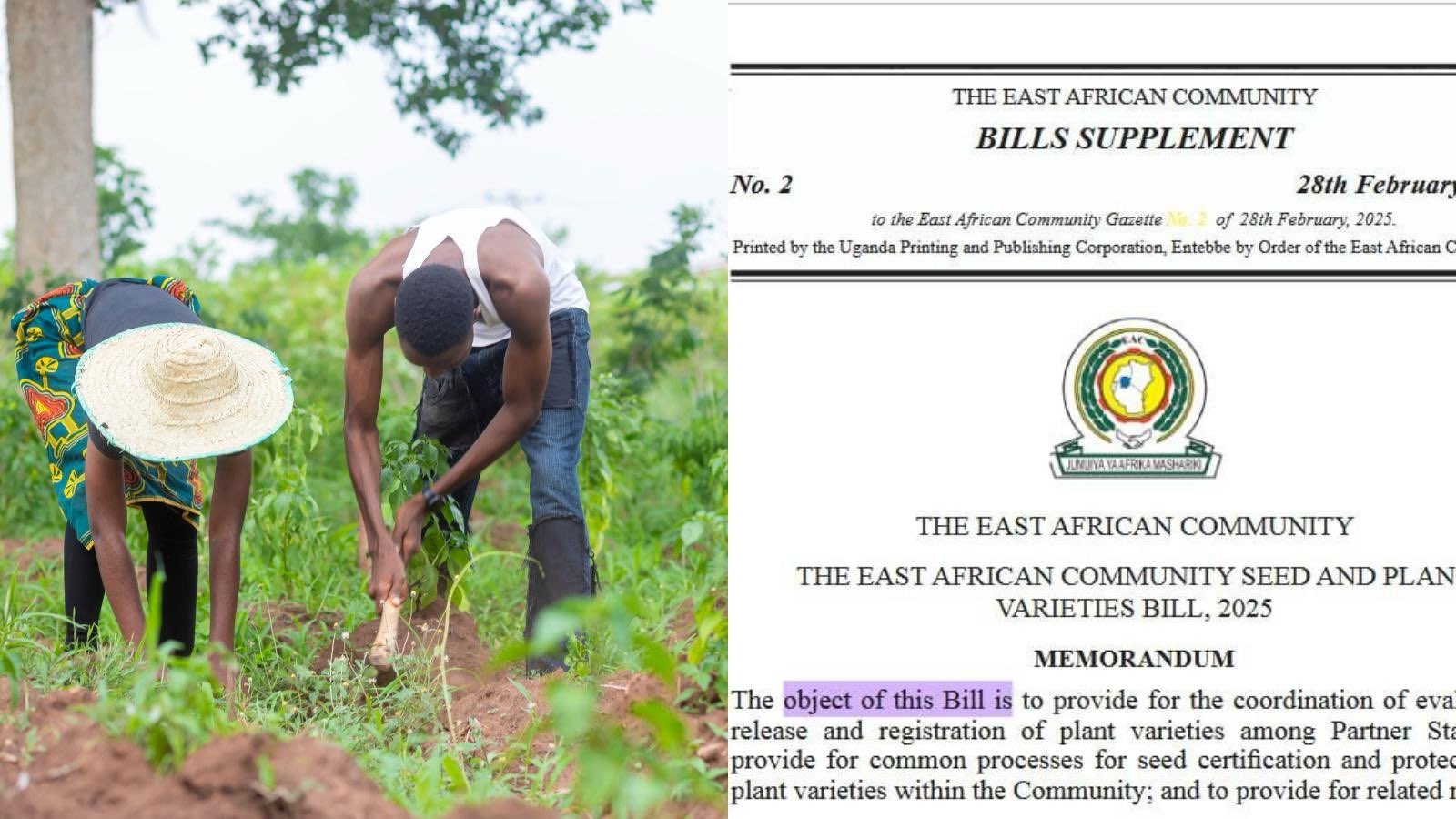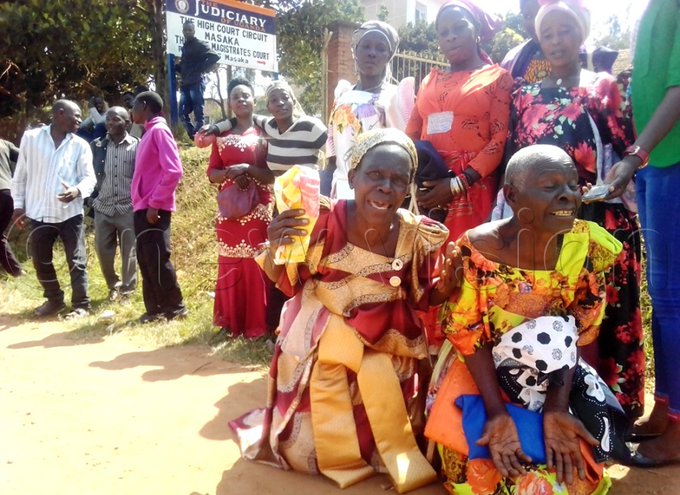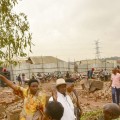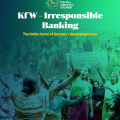By Witness Radio team.
As the detrimental effects of the East African Crude Oil Pipeline (EACOP) project intensify, hundreds of Ugandan communities are bearing the brunt of this colossal project. From forced evictions and displacements to the criminalization of project critics and now devastating flash floods, the urgency of addressing these issues is paramount. The suffering of local communities hosting the project has been exacerbated.
In Kyotera District, central Uganda, communities remain stranded as floodwaters rush into their homes and gardens, destroying their food stores and leaving families in despair. Residents attribute the cause of the floods to the ongoing construction activities related to the EACOP project.
Kyotera is one of the 10 districts that the project traverses to the port of Tanga in Tanzania; the others include Hoima, Kikuube, Kakumiro, Kyankwanzi, Gomba, Mubende, Lwengo, Sembabule, and Rakai.
The EACOP project, a 1,444km pipeline that will transport oil from Hoima in Uganda to the port of Tanga in Tanzania, has cast a wide net of impact. It has affected thousands of people, especially in local communities, leading to displacement, destruction of property and crops, and environmental hazards such as floods.
The development of oil activities in Uganda has led to several major projects supporting oil extraction, processing, and export. The proponents of these projects argue that they bring economic development and job opportunities to the region.
These include the EACOP project, the Tilenga Project operated mainly by Total Energies (with partners like CNOOC and UNOC), which covers oil fields located in Buliisa and Nwoya districts, and the Kingfisher Project, which is managed by the Chinese oil company CNOOC and is located on the southeastern shores of Lake Albert (mainly in Kikuube District). It focuses on drilling oil and setting up a central processing facility (CPF), and oil camps and access roads have been constructed to support these operations.
However, these developments have not left the communities the same. Instead of bringing only the promised prosperity, they have contributed to poverty, fear, and uncertainty among the local populations and have exacerbated the climate crisis.
It is also worth noting that activists who stand up to defend these communities face a different kind of suffering: harassment, surveillance, arrests, and even physical attacks. They have been criminalized under vague charges, often labeled as enemies of development for demanding transparency, fair compensation, and environmental protection.
For the communities in Kyotera, the construction of an access road leading to the EACOP camp in the Kyotera district, which serves as a base for project operations, blocked drainage channels, causing water to overflow into the neighboring villages.
The floods, which started last month in April, have now affected seven households in Kyakacwere village, Kakuto Subcounty, Kyotera district.
People’s houses and gardens are flooded, forcing them to look for alternative places to live, and several plantations, such as banana plantations, maize, and beans, among others, continue to be affected. The impacts have already caused dispossession to the affected communities and are likely to cause financial losses and food insecurity for smallholder farmers and their families.
Noeline Nambatya, a 47-year-old mother and a person with disability, shares her traumatic experience of waking up to a flooded house. “This has never happened to us. I found my house full of water in the morning, and several of my household items had already been destroyed. We want justice, we can’t stay in this situation. We were living peacefully, and now, because of the so-called investors, this is what we are reaping.” She revealed in an interview with the Witness Radio team.
The disaster left her home logged, her crops destroyed, and her livelihood distorted. Currently, the caretaker of eight faces immense challenges in providing for her family, including feeding and supporting them in school. The adverse situation forced her and the family to relocate to the nearby village of Muyenga.
Another affected person, Lukyamuze Paul, claims the floods have caused significant damage, including cracking houses and severely destroying crops. He holds the EACOP project responsible for the devastation, stating that when the access road leading to the EACOP camp was constructed, it blocked existing drainage channels, changing the natural water flow into people’s homes.
The environmental concerns arising from EACOP project activities, such as floods, continue to affect different project host communities. The problem was first experienced in Bulisa district in 2022 when Total Energies began the construction of the Tilenga feeder pipeline, resulting in floods that affected surrounding communities.


 MEDIA FOR CHANGE NETWORK2 weeks ago
MEDIA FOR CHANGE NETWORK2 weeks ago
 MEDIA FOR CHANGE NETWORK1 week ago
MEDIA FOR CHANGE NETWORK1 week ago
 SPECIAL REPORTS AND PROJECTS1 week ago
SPECIAL REPORTS AND PROJECTS1 week ago
 MEDIA FOR CHANGE NETWORK1 week ago
MEDIA FOR CHANGE NETWORK1 week ago
 SPECIAL REPORTS AND PROJECTS1 week ago
SPECIAL REPORTS AND PROJECTS1 week ago
 MEDIA FOR CHANGE NETWORK2 days ago
MEDIA FOR CHANGE NETWORK2 days ago
 NGO WORK22 hours ago
NGO WORK22 hours ago





